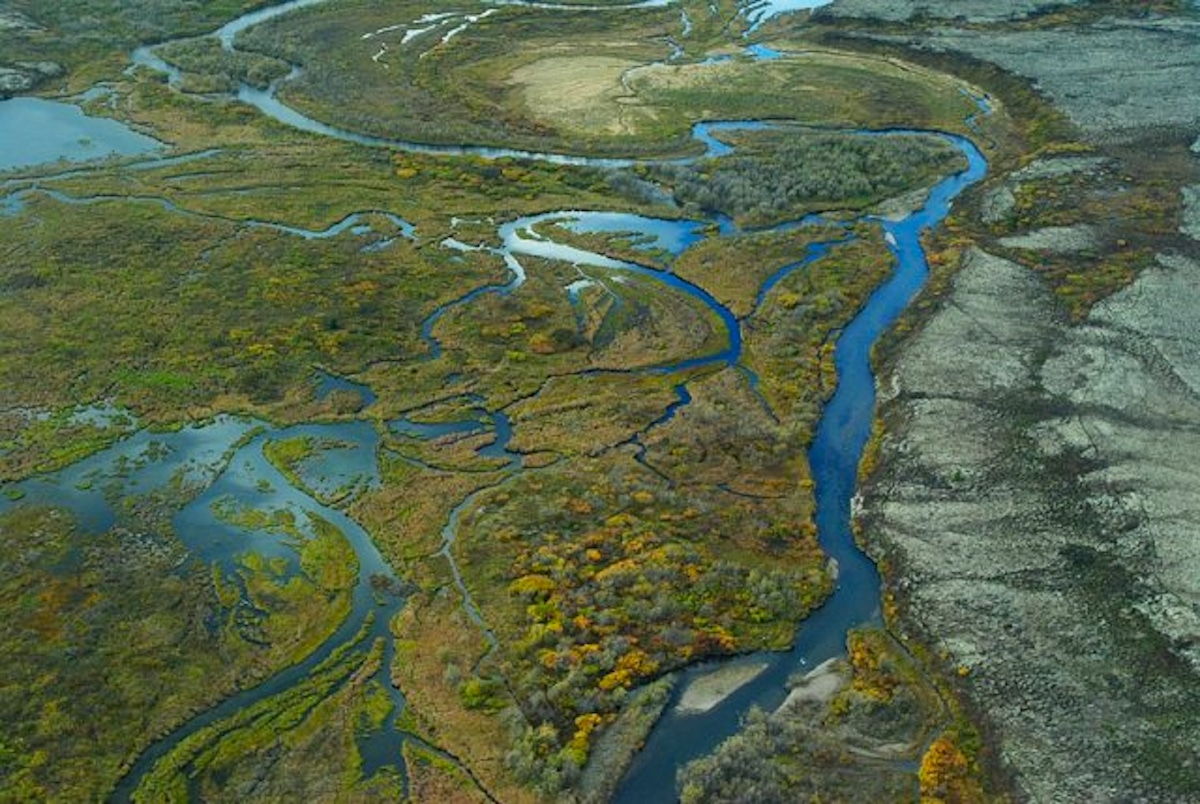Products You May Like
The Bristol Bay watershed in Alaska. EPA
 Why you can trust us
Why you can trust us
Founded in 2005 as an Ohio-based environmental newspaper, EcoWatch is a digital platform dedicated to publishing quality, science-based content on environmental issues, causes, and solutions.
The watershed of Bristol Bay, Alaska, is home to the largest wild sockeye salmon fishery in the world.
But for decades a threat has loomed over the streams and rivers that provide spawning grounds for the salmon and habitat for other aquatic species: the planned Pebble gold and copper mine that would clog those waters with waste. Now, however, the U.S. Environmental Protection Agency (EPA) has moved to protect those waters from future mining discharge with a little-used authority under the Clean Water Act (CWA).
“This is the final nail in the coffin for the Pebble Mine,” Senator Maria Cantwell (D-Wash) told The Washington Post.
In an announcement Tuesday, the EPA issued a Final Determination preventing the discharge of dredged or fill materials from the proposed mine — or any future development — into parts of the South Fork Koktuli River and North Fork Koktuli River watershed. This is the third time in three decades that the EPA has taken advantage of this particular CWA authority.
More From EcoWatch
“After reviewing the extensive scientific and technical record spanning two decades, EPA has determined that specific discharges associated with developing the Pebble deposit will have unacceptable and adverse effects on certain salmon fishery areas in the Bristol Bay watershed,” EPA Assistant Administrator for Water Radhika Fox said in the announcement. “Our Final Determination helps prevent those adverse effects while helping protect a vibrant and magnificent watershed.”
Bristol Bay is a biodiversity haven for 29 fish species — including all five species of Pacific salmon — and more than 40 terrestrial mammals and more than 190 species of birds. Its salmon provide 15,000 jobs a year and generated $2.2 billion in 2019. The salmon are also extremely important culturally and dietarily for the 25 Alaska Native villages in the area. For some of these communities, the salmon provides more than half of their subsistence foods.
While some Indigenous groups in Alaska supported the mine for economic reasons, the Tribes living around the bay itself vehemently opposed it, despite being told it was a wasted effort, The New York Times reported.
“Thank goodness our tribal leaders did not accept that,” United Tribes of Bristol Bay Executive Director Alannah Hurley told The New York Times. “We’ll be celebrating this decision for decades to come.”
She added that Tuesday’s decision “was a real moment of justice for us.”
The Pebble mine project was first put forward in the early 2000s and gained support from Republican Alaska politicians. However, the EPA under former President Barack Obama moved to block it. Under former President Donald Trump, the EPA reversed its earlier ruling, but the United States Army Corps of Engineers still denied it an important permit. While some Alaska lawmakers have continued to back it, other regional leaders, like Washington’s Cantwell, have opposed it because of its threat to the regionally important salmon.
Pebble Limited is currently appealing the Army Corp’s 2020 decision, as The Washington Post reported. In response to the EPA’s latest move, the mining industry argued that mineral resources are necessary for the energy transition.
“This end-run of the proper permitting process creates significant regulatory uncertainty for the mining industry during a crisis point for minerals demand,” the National Mining Association said in a statement reported by The Washington Post.
However, environmental groups have praised the decision.
“We are so excited that the Biden administration has fulfilled their campaign promise to provide protections for Bristol Bay,” Environment American Public Lands Director Ellen Montgomery said in a statement emailed to EcoWatch. “Around the world, we are losing the equivalent of a football field worth of nature every minute. With this decision, thankfully, the headwaters of Bristol Bay won’t be added to that tally.”
The EPA’s Bristol Bay decision is the latest in a series of decisions to protect ecologically sensitive areas from extractive industries. It comes a week after it moved to prevent logging in Alaska’s Tongass National Forest and mining in Minnesota’s Boundary Waters Area Watershed.
Subscribe to get exclusive updates in our daily newsletter!
By signing up, you agree to the Terms of Use and Privacy Policy & to receive electronic communications from EcoWatch Media Group, which may include marketing promotions, advertisements and sponsored content.
